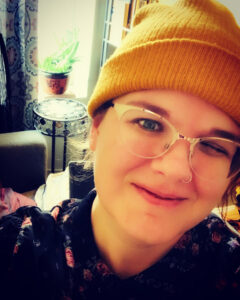Elbaum, Alan. “Black Lives in a Pandemic: Implications of Systemic Injustice for End‐of‐Life Care.” The Hastings Center report 50.3 (2020): 58–60. Web.
In recent months, Covid‐19 has devastated African American communities across the nation, and a Minneapolis police officer murdered George Floyd. The agents of death may be novel, but the phenomena of long‐standing epidemics of premature black death and of police violence are not. This essay argues that racial health and health care disparities, rooted as they are in systemic injustice, ought to carry far more weight in clinical ethics than they generally do. In particular, this essay examines palliative and end‐of‐life care for African Americans, highlighting the ways in which American medicine, like American society, has breached trust. In the experience of many African American patients struggling against terminal illness, health care providers have denied them a say in their own medical decision‐making. In the midst of the Covid‐19 pandemic, African Americans have once again been denied a say with regard to the rationing of scarce medical resources such as ventilators, in that dominant and ostensibly race‐neutral algorithms sacrifice black lives.Is there such thing as a “good” or “dignified” death when African Americans are dying not merely of Covid‐19 but of structural racism?
reflection:
African Americans go through so much on a daily basis and the social injustice situation is just another add on to these problems we face everyday. the difference between races is that black people have been going through different types of injustice because of the color of our skin this all started since slavery. and in this around this whole thing with the covid you would think more black people will die because of the whole covid thing but we are getting killed because of systematic injustice and racism.
Quotation
“Few would fight for a miracle in intensive care if hospice could guarantee a comfortable, peaceful death at home. Though several carry their parents’ trauma from the Holocaust, they no longer have to fear racial discrimination in the United States.”
Williams, Yvette. “Social Inequality Leads to Injustice.” TED, www.ted.com/talks/yvette_williams_social_inequality_leads_to_injustice.
Yvette Williams, MBE has lived in North Kensington for over 30 years. She previously worked with the Mangrove Community Association and has served tenure as a Trustee for the Tabernacle Community Centre and the Pepper Pot Club (African Caribbean Elders Centre). She is also a founding member of Operation Black Vote – a national campaign encouraging BME communities to engage in the democratic process. She has worked with a number of campaigns including those for Stephen Lawrence and Frank Critchlow. Yvette has a professional background working in education and criminal justice. Both Yvette and her daughter witnessed the fire at Grenfell Tower, after being alerted by a family friend who was evacuated from one of the walkways.
reflection
these people in London goes through the same thin g we in the United States go through\. because she talks about the people in the south being treated unfairly because they live in lower class neighbor hoods.
quotation
“my father told me stand up for something or fall for everything”
the wave of how the north of the tower treated the south of the tower”





Leave a Reply